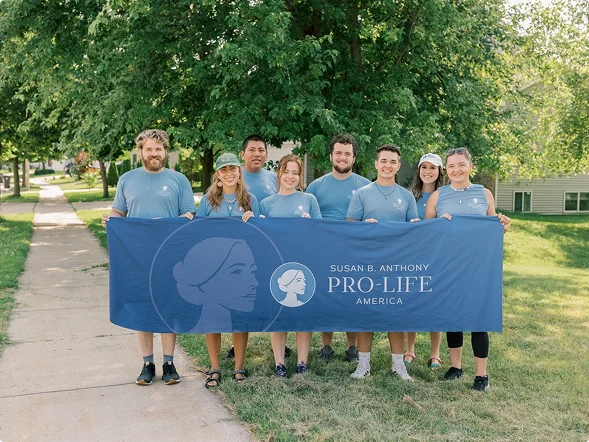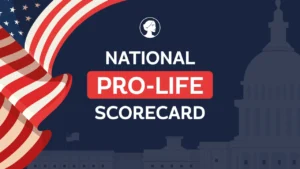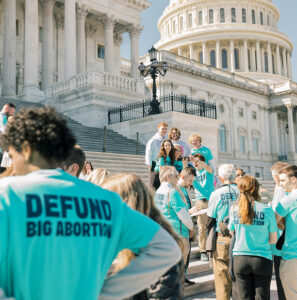Emergency care for pregnant women: Biden’s abortion distortion


Kicking off the new year with a big victory for babies, women and the doctors who care for them, the 5th U.S. Circuit Court of Appeals on Tuesday blocked the Biden administration from forcing emergency room doctors to carry out abortions (State of Texas v. Becerra). The panel ruling was unanimous.
This litigation has been playing out for well over a year, with separate cases originating simultaneously in more than one state. (Stay with us, because the timeline gets a little complicated and we’re diving right in.) Recently it has attracted fresh attention – and media malpractice – due to the tragic case of a Texas woman who sued the state, unsuccessfully, to have an abortion outside the scope of its existing protections for pregnant women needing emergency care.
Every state with strong pro-life laws allows timely and necessary care for pregnant women in an emergency (you can read them here). Texas, for example, specifically allows “the exercise of reasonable medical judgment” – a well-defined standard – to avert a woman’s death or substantial bodily impairment.
In July 2022, the Biden administration tried to head off several pro-life state laws that were set to take effect in the weeks after Dobbs. The Department of Health & Human Services issued “guidance” to force doctors in pro-life states to carry out abortions, even against their better medical judgment. Their strategy involved twisting a federal law called the Emergency Medical Treatment and Active Labor Act (EMTALA), which says ER patients must be stabilized and treated regardless of their ability to pay.
Texas Attorney General Ken Paxton responded by suing the administration.
EMTALA: What does it do?
EMTALA requires emergency departments at federally funded hospitals to screen for an emergency medical condition and provide stabilizing treatment – and if necessary, to transfer to another facility. Importantly, it does not dictate precisely how that must be done.
In the case of pregnancy, EMTALA recognizes that there are two patients in need of care. EMTALA defines an emergency medical condition as one that puts the pregnant woman or her unborn child in serious jeopardy.
In an amicus brief in the Texas case, Charlotte Lozier Institute noted how the administration actually interfered in good medical care by promoting abortion above all: “The new guidance will, in some instances, require or coerce physicians to participate in abortions…[it] severely limits a physician’s judgment as to what constitutes a true medical emergency.”
EMTALA has never mandated abortion.
The Biden administration’s position does not pass the smell test. Not only do they distort EMTALA beyond recognition, but their guidance also violates federal anti-discrimination laws, such as the Weldon amendment, which prohibits HHS funding for any federal agency or program that discriminates against a health care entity because it doesn’t provide, cover, pay for, or refer for abortion. That includes hospitals.
In his complaint, Attorney General Paxton made the legal issues crystal clear: “EMTALA does not mandate, direct, approve or even suggest the provision of any specific treatment. It says nothing about abortion.”
Two federal courts have now agreed with him, blocking the administration’s machinations with regard to the state of Texas as well as all members of the American Association of Pro-Life OB-GYNs (AAPLOG) and the Christian Medical & Dental Associations (CMDA), two medical groups who joined the lawsuit.
The 5th Circuit pointed out Congress specifically added “unborn child” into EMTALA in 1989, and further states, “EMTALA does not provide an unqualified right for the pregnant mother to abort her child.”
Supreme Court showdown
Two similar cases out of Idaho are pending before the U.S. Supreme Court. The Biden administration is suing Idaho over its Defense of Life Act, a “trigger” law that protects babies broadly throughout pregnancy which took effect two months after Dobbs – two years after Gov. Brad Little signed it into law.
Attorney General Merrick Garland falsely claimed the law does not allow women suffering life-threatening medical emergencies to be treated.
A federal judge in Idaho issued a technical finding about the enforcement of the Defense of Life Act’s life-of-mother protections, but the law overall stayed in effect.
Separately, in January 2023 Idaho’s own Supreme Court upheld the Defense of Life Act, rejecting Planned Parenthood’s arguments that the state constitution contains a right to abortion. In the 2023 legislative session the law’s protections for the mother’s life were made even clearer.
In September 2023, a panel of the 9th Circuit – yes, that 9th Circuit – unanimously granted Idaho’s request to enforce the law while pursuing an appeal. Then, inexplicably, they reversed themselves without comment – setting the stage for a Supreme Court resolution.
Idaho’s Attorney General Raúl Labrador is defending the law in an emergency petition to the Supreme Court. As SBA’s State Policy Director Katie Daniel told the Daily Signal, the Court could very well hear the merits of the case; that decision could come any time.
Avoid bad media behavior
In his latest Bench Memo at National Review, the Ethics and Public Policy Center’s Ed Whelan writes about the 5th Circuit:
The ruling has generated some wildly confusing headlines seemingly scripted for the media by the abortion industry (pardon me for positing a sharp distinction between the two), such as “Appeals court rules Texas can ban emergency abortions in spite of federal guidance” (NBC News) and “Texas can ban emergency abortions despite federal guidance, court rules” (Reuters).
To members of the press who earnestly want to get this right, the facts are in your hands. Readers deserve the full truth from you, not your polished version of recycled Planned Parenthood talking points.



















